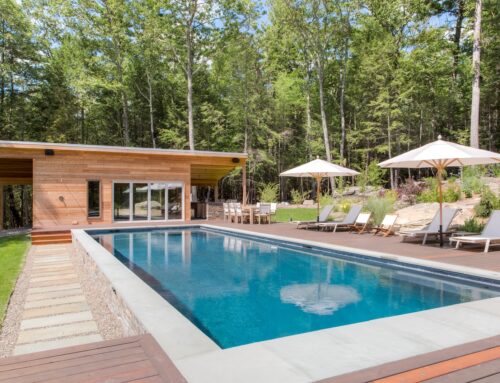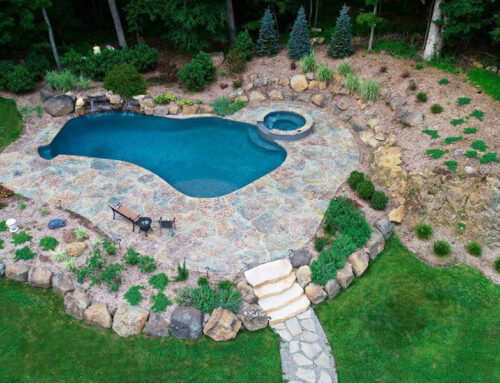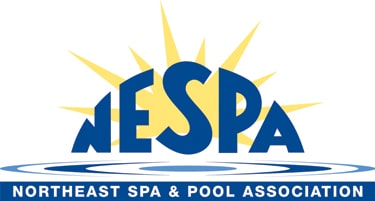Following the Omicron flare-up and a reminder that in many ways, pandemic safety is the “new normal,” you might be wondering: What steps are necessary for pool health and safety as we move into the swimming season in New York and Connecticut?
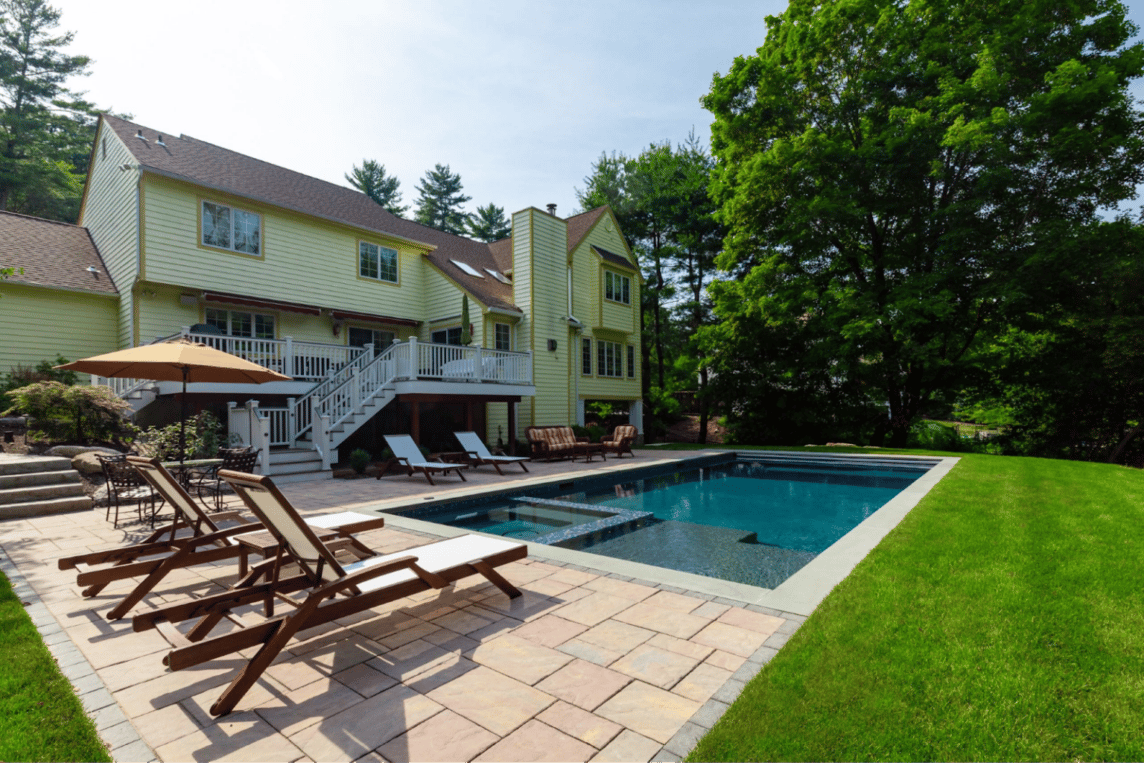
While Covid-19 restrictions for pool use were lifted, new protocols are in place for public pools and resort pool/spas because we learned a lot during the last two years — including how to prevent disease spread and the importance of sanitation at any time. So, why not apply these practices moving forward so you can swim safe and healthy regardless of whether there are restrictions?
Here are some ways to stay healthy this swimming season.
Limit the Pool Load
Just because your pool can handle 20 guests doesn’t mean it should. As we learned throughout Covid-19, safe distancing can stop the spread of disease. But from a pool perspective, the reason why it’s so important to pay attention to bather load is because too many swimmers can throw off a healthy chemical balance that is necessary to assure high sanitary standards.
Now, what happens if you push the limit a bit? Regardless of who and how many people are swimming in your New York or Connecticut pool, make a habit of testing the water pH at least every two weeks, and definitely following times when your pool has been at full capacity. The standard for pH is 7.2 to 8.0. And as for gatherings in general, as you plan for ways to use your outdoor living spaces, keep in mind these suggestions from the CDC that are helpful regardless of whether the pandemic is flaring.
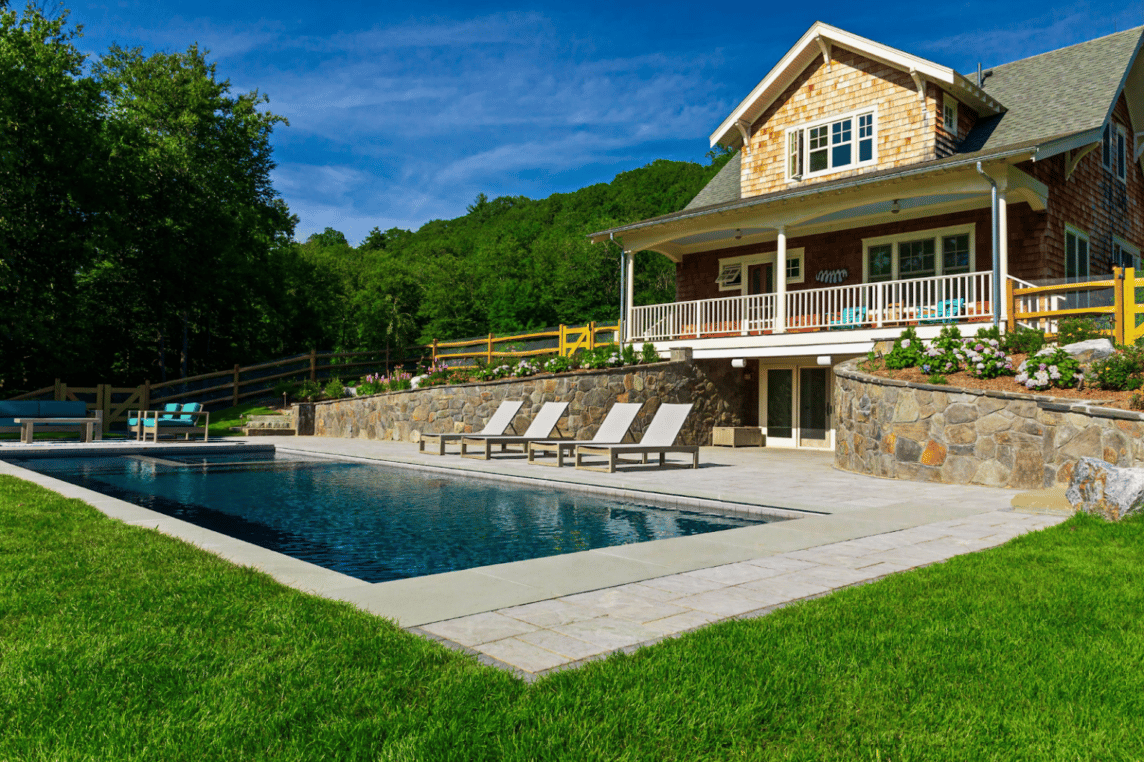
Check Chlorine Levels
Chlorine is a proven disinfectant, and maintaining safe levels—not too much to avoid eye and skin irritation, and not too little to keep water healthy. According to the chlorine company Bioguard, pools and hot tubs should continuously maintain a free available chlorine residual of 1 to 4 parts per million (ppm), and a 2 to 5 ppm residual for bromine using an EPA registered sanitizer. You might be wondering: Are salt water chlorination systems just as “clean?” The answer is, yes. Saltwater systems convert sodium chloride into chlorine with a generator, and the result is killing bacteria, algae, viruses and other contaminants.
Keep in mind, sunlight can cause chlorine produced by saltwater systems (or any chlorine, for that matter) to degrade over time. So can a pool party with lots of swimmers, a heavy rainstorm and other environmental factors. Back to our previous point, be sure to check pH regularly and if you have a saltwater system, keep some chlorine on hand in case you need to add some to correct the pH to ideal levels.
Clean Pool Slides, Handlebars and Ladders
Think about all of the surfaces we come into contact with when getting in and out of a pool, or enjoying its many swimming pool and spa features like slides and diving boards. To keep your New York or Connecticut pool area sanitized and safe during any time (pandemic or not), remember all of these frequently touched spots that need to be cleaned. And no, the fact that the pool’s chlorinated water laps against a ladder or rushes down a slide does not make it clean. Here are a few best practices to keep in mind:
- Daily, rinse stainless steel handles and rails with fresh water.
- Every week, use a soft cloth to handle tough spots.
- On a weekly basis, use a soft cloth on the pool slide—and for more serious cleaning, use a granulated chlorine powder and scrub softly followed by a mild cleanser.
- Avoid using abrasive scrubbers.
Don’t Forget the Furniture
The pool might be central to your outdoor living space, but as you focus on keeping your favorite place to float, splash and swim, don’t forget the other surfaces: chaises lounge, outdoor dining sets, poolside bars and more. We recommend you refer to manufacturers’ instructions for cleaning so you can be sure to properly sanitize without scratching or compromising surfaces that could be sensitive to harsh cleaners. And as for the pool deck, depending on the surface, you can use an oxygenated (not chlorine) bleach diluted with water, or a diluted vinegar solution. This will help kill algae, moss and more. Occasionally, use a pressure washer to get rid of stubborn grime, but do not allow the water to flow into the pool.
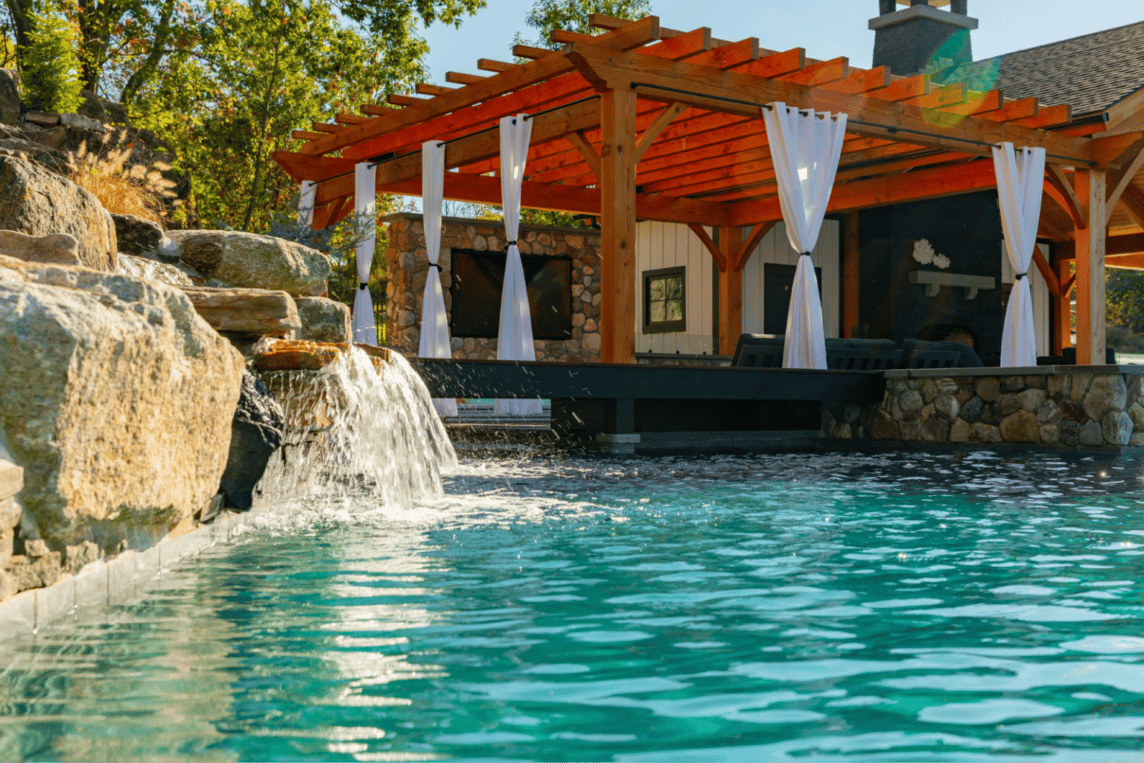
Swim, Play, Entertain – Build Your Backyard Dream
Dive into a pool project with us! Contact us at 845-463-0592 in Hudson Valley, 914-271-7996 in Westchester, and 203-212-4800 in Connecticut. Or, fill out this simple form and we’ll get in touch with you.


